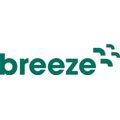Truely offre eSIM Switchless® per viaggiatori, nomadi digitali e frequent flyer, offrendo connettività globale istantanea in oltre 190 paesi senza costi di roaming. I nostri piani Unlimited includono Internet ad alta velocità per i primi 5 GB al giorno, seguiti da dati illimitati a 512 kbps per il resto della giornata. Inoltre, i piani Bundle GB e i Data Pack saranno presto disponibili!

Truely offre eSIM Switchless® per viaggiatori, nomadi digitali e frequent flyer, offrendo connettività globale istantanea in oltre 190 paesi senza costi di roaming. I nostri piani Unlimited includono Internet ad alta velocità per i primi 5 GB al giorno, seguiti da dati illimitati a 512 kbps per il resto della giornata. Inoltre, i piani Bundle GB e i Data Pack saranno presto disponibili!
Promo / Codice Coupon
Piani dati eSIM Truely per la Colombia
Domande frequenti
Truely offre eSIM con dati illimitati in Colombia?
Sì, Truely vende piani eSIM illimitati per la Colombia. I piani vanno da 1 giorno a 30 giorni di validità e i prezzi coprono un intervallo simile, da circa $6, 32 USD per un pass di un giorno a circa $93, 93 USD per l’opzione di 30 giorni.
Tutti i piani illimitati indicano che la velocità può essere limitata e si applica una Politica di Uso Equo, il che significa che dopo un utilizzo intenso le velocità di dati possono essere ridotte. I viaggiatori che vogliono confermare se un piano specifico include una quota di velocità gratuita o qualsiasi altro dettaglio dovrebbero contattare Truely direttamente.
Truely offre l’eSIM colombiana con numero di telefono e SMS?
Truely non fornisce un piano eSIM per la Colombia che includa un numero di telefono o capacità SMS. Il fornitore offre solo eSIM in modalità dati per la Colombia. I viaggiatori che hanno bisogno di comunicare in Colombia possono utilizzare app VoIP come WhatsApp, Telegram o iMessage tramite la connessione dati.
Quanti piani dati offre Truely per la Colombia?
Truely elenca 17 piani a singola nazione che coprono la Colombia e 16 piani multi‑nazione che includono la Colombia.
Queste opzioni coprono un intervallo di prezzo di circa 2, 89 $ a 99, 49 $ e limiti di dati da 300 MB fino all'infinito.
I piani a singola nazione forniscono dati esclusivamente per l'uso all'interno della Colombia, mentre i piani multi‑nazione estendono la copertura a diversi paesi vicini oltre alla Colombia.
Riepilogo con Gen AI. Ultima modifica:




